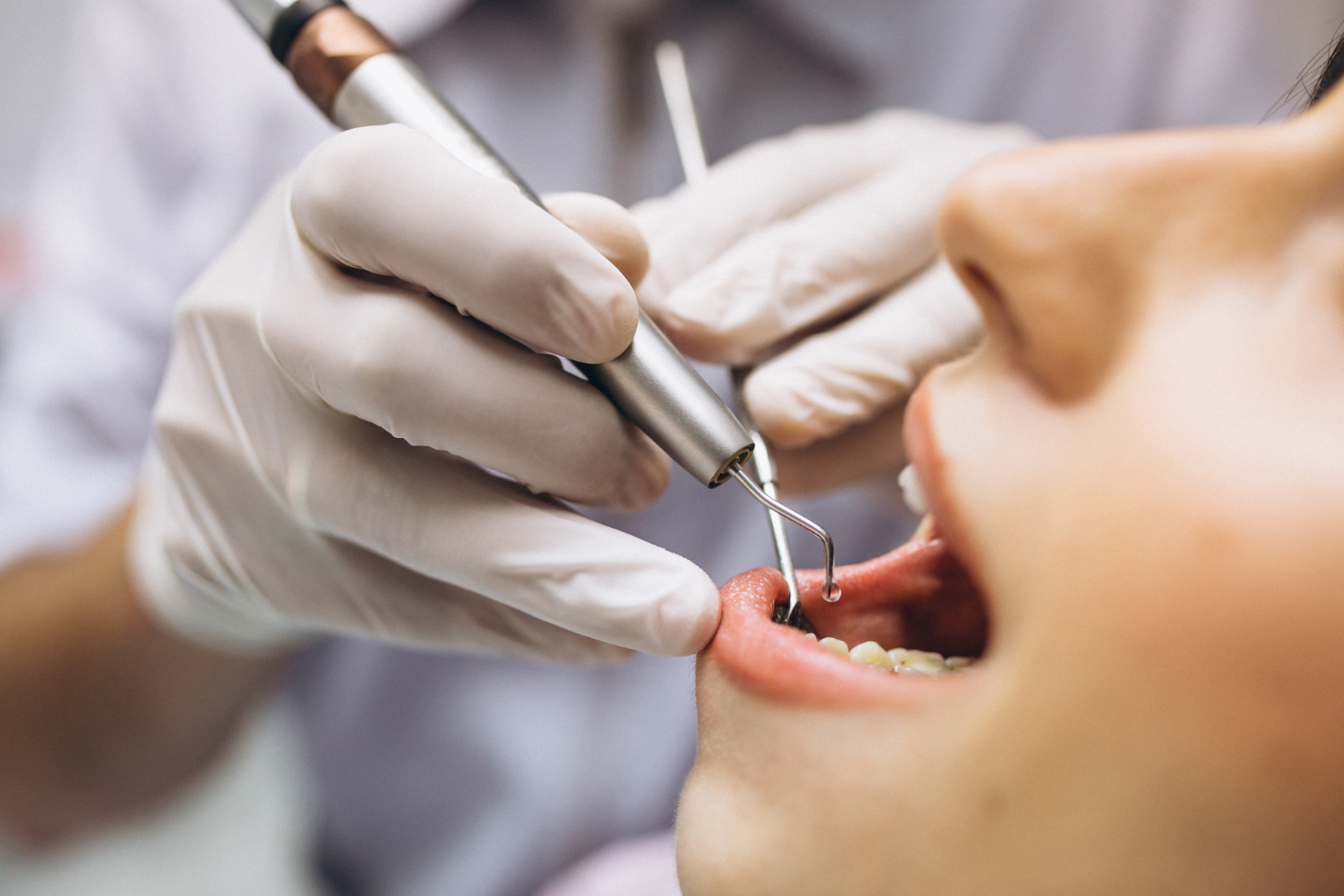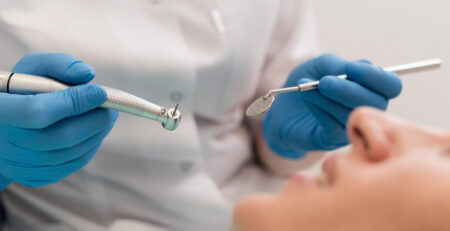TMJ Disorder Management: Optimize Your Bite and Get Relief from Pain
TMJ disorder can be a painful and distressing condition that affects the temporomandibular joint, causing discomfort and limitations in daily life. Understanding the intricacies of TMJ disorder is essential to find effective relief. In this comprehensive guide, we will explore various management techniques, from non-surgical approaches to long-term care, to optimize your bite and alleviate pain. If you’re experiencing TMJ symptoms, don’t wait any longer – consult with a Maple Ridge dentist for expert evaluation and personalized care.

Understanding TMJ Disorder
TMJ disorder, also known as TMD, refers to issues with the temporomandibular joint, which connects your jawbone to the skull. This complex joint allows for smooth jaw movements, enabling us to speak, chew, and yawn. When it malfunctions, it can lead to significant pain and discomfort. Understanding the anatomy and mechanics of this joint is crucial in effectively managing the disorder.
Causes of TMJ Disorder
The causes of TMJ disorder can be diverse, ranging from physical trauma, misalignment of the jaw, or even teeth grinding. Stress and anxiety can exacerbate symptoms, leading to muscle tension and jaw clenching. Identifying the root cause of your TMJ disorder is essential for tailoring a targeted treatment plan.
Signs and Symptoms of TMJ Disorder
TMJ disorder manifests through a variety of symptoms, such as jaw pain, clicking or popping sounds, headaches, and difficulty opening or closing the mouth. Some patients may also experience earaches and facial pain. Recognizing these signs can prompt early intervention and prevent the condition from worsening.
Diagnosing TMJ Disorder
Evaluating Your Bite Accurate diagnosis is key to effective TMJ management. A Maple Ridge dentist with expertise in TMJ disorders will conduct a comprehensive evaluation, which may include dental X-rays, bite analysis, and physical examinations. This evaluation helps identify the extent of the problem and guides the formulation of a suitable treatment plan.
Importance of Early Detection and Intervention
Early detection of TMJ disorder allows for prompt intervention, which can prevent the condition from progressing. Seeking professional help at the first signs of discomfort is vital. Your dentist will recommend appropriate management techniques, reducing the risk of long-term complications.
Non-Surgical TMJ Management Techniques
In many instances, non-surgical approaches are the first line of defense in managing TMJ disorder, offering effective relief without the need for invasive procedures. One such technique involves jaw exercises specifically designed to strengthen the muscles surrounding the temporomandibular joint. These exercises aim to improve jaw mobility, enhance muscle coordination, and reduce tension, ultimately alleviating pain and discomfort associated with TMJ disorder. Your Maple Ridge dentist may recommend a series of exercises tailored to your condition, and performing them regularly can contribute to long-term improvement.

Orthodontic Approaches for TMJ Disorder
Orthodontic treatments can be transformative in managing TMJ disorder, especially when jaw misalignment or teeth discrepancies are contributing factors. Braces, aligners, or other dental appliances prescribed by a Maple Ridge dentist can correct the alignment of your teeth and jaw, ultimately reducing pressure on the temporomandibular joint and alleviating associated discomfort.
Braces are a popular orthodontic option for patients with TMJ disorder. By gently applying pressure to shift teeth into their proper positions, braces help realign the bite, reducing strain on the jaw joint and improving overall dental function. As the bite is corrected, the risk of TMJ-related symptoms diminishes, leading to a more comfortable and functional mouth.
Aligners are an alternative to braces, offering a more discreet and removable option for TMJ management. These clear, custom-made trays gradually reposition teeth, addressing jaw misalignment and bite issues. Aligners are particularly beneficial for patients who require less severe orthodontic adjustments and prefer a more inconspicuous treatment option.
Dental Appliances for TMJ Relief
Customized dental appliances play a pivotal role in alleviating TMJ pain, and your Maple Ridge dentist may recommend splints or mouthguards based on your specific needs.
Mouthguards are commonly used to manage TMJ symptoms resulting from sports-related injuries or accidents. These appliances provide a protective barrier for the teeth and jaw, preventing further trauma and supporting the healing process. Mouthguards are especially beneficial for patients who engage in contact sports or have a history of jaw injuries.
Lifestyle Changes for TMJ Pain Management
Managing TMJ disorder effectively often requires making certain lifestyle adjustments. Stress is a common trigger for TMJ symptoms, so incorporating relaxation techniques into your daily routine can be immensely beneficial. Engaging in activities such as meditation, deep breathing exercises, or yoga can help reduce overall stress levels, leading to decreased muscle tension in the jaw and a more relaxed state.
Additionally, modifying your diet can have a significant impact on TMJ pain management. Avoiding hard or chewy foods that require excessive jaw movement can help minimize strain on the temporomandibular joint. Opting for softer, easily chewable foods can give your jaw a much-needed break and reduce discomfort.
Physical Therapy and Exercises for TMJ Relief
Physical therapy is a valuable component of TMJ management, as it focuses on improving jaw mobility and strengthening surrounding muscles. A qualified physical therapist will create a customized exercise plan to address your specific needs, targeting the muscles responsible for jaw movement and stability.
Therapeutic exercises often include gentle stretches to increase jaw flexibility and mobility. These exercises can help release muscle tension, alleviate jaw pain, and improve your ability to open and close your mouth comfortably. Over time, consistent practice of these exercises can lead to improved joint function and reduced TMJ symptoms.
Stress Management for TMJ Patients
Stress and anxiety are well-known contributors to TMJ disorder, as they can lead to increased muscle tension and jaw clenching. Learning effective stress management techniques can significantly improve TMJ-related discomfort and promote overall well-being.
Meditation is a powerful stress-reduction technique that involves focusing your mind on the present moment. By practicing mindfulness and deep breathing exercises, you can calm your mind and relax your muscles, including those in the jaw area. Regular meditation can help break the cycle of stress-induced clenching and grinding, leading to reduced TMJ symptoms.
Medications for TMJ Pain and Inflammation
In some cases, your dentist may recommend over-the-counter pain relievers or muscle relaxants to alleviate TMJ-related pain and inflammation temporarily. These medications can provide short-term relief while other management techniques are being implemented. However, it’s crucial not to rely solely on medication and instead combine it with other non-surgical approaches for comprehensive TMJ management.
Non-steroidal anti-inflammatory drugs (NSAIDs) are commonly used to reduce inflammation and alleviate pain associated with TMJ disorder. Ibuprofen and naproxen are examples of NSAIDs that can provide relief from acute TMJ symptoms.
Surgical Options for Severe TMJ Cases
For severe TMJ disorders that don’t respond to conservative treatments, surgical intervention may be necessary. Your dentist will discuss the available surgical options, such as arthroscopy or joint replacement, and their potential benefits and risks.

Regain Your Smile’s Radiance with Lumina Dental: Your Trusted Partner in Effective TMJ Disorder Management
If you’re ready to take the first step towards effective TMJ disorder management and regain your smile’s radiance, look no further than Lumina Dental. Our experienced team of dental professionals is dedicated to providing personalized solutions for TMJ relief and overall oral health. Don’t let TMJ pain hold you back any longer. Let us be your trusted partner in your journey toward a pain-free and radiant smile. Schedule a consultation and discover how Lumina Dental can help you optimize your bite, alleviate discomfort, and restore your confidence.










